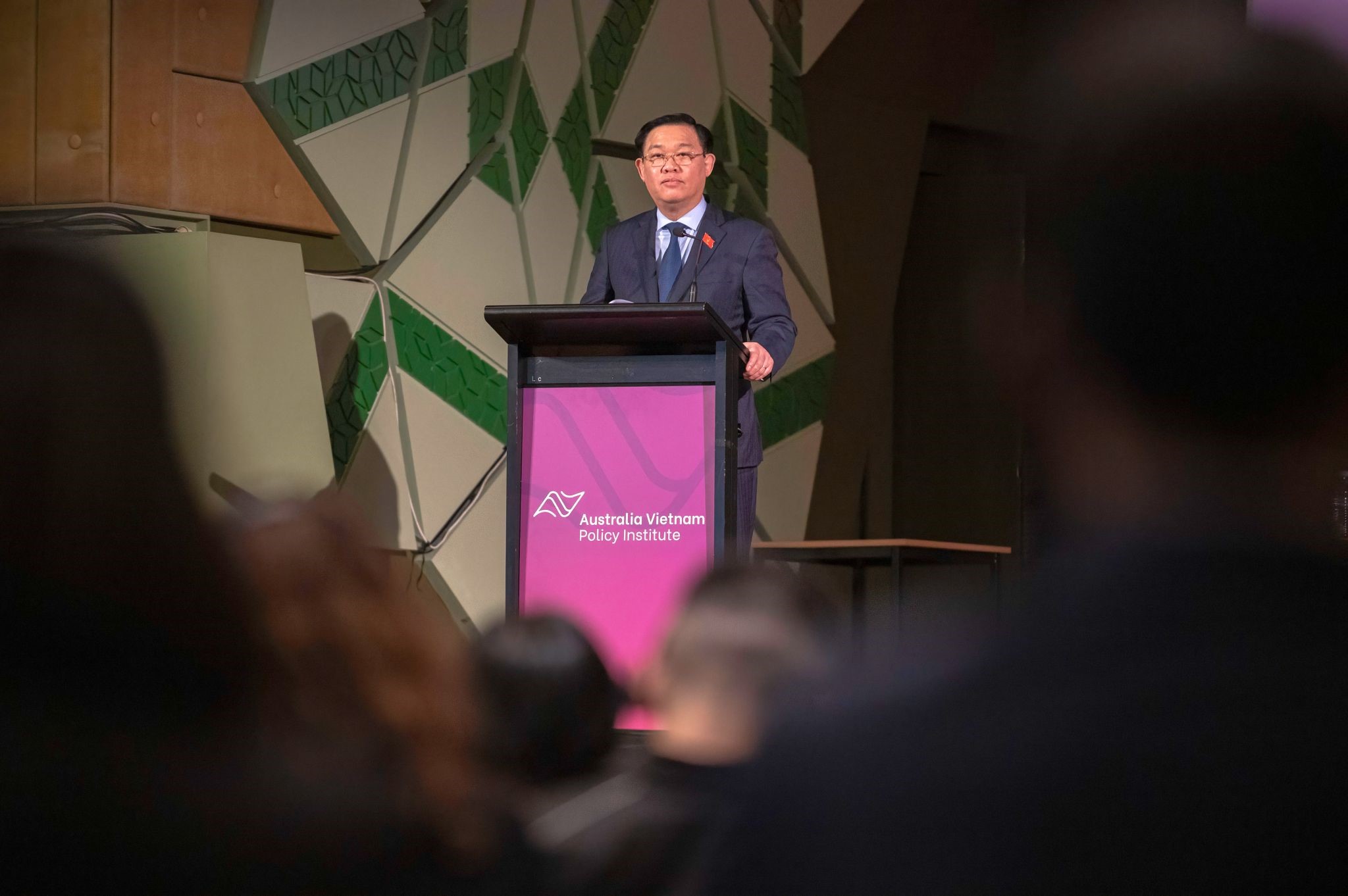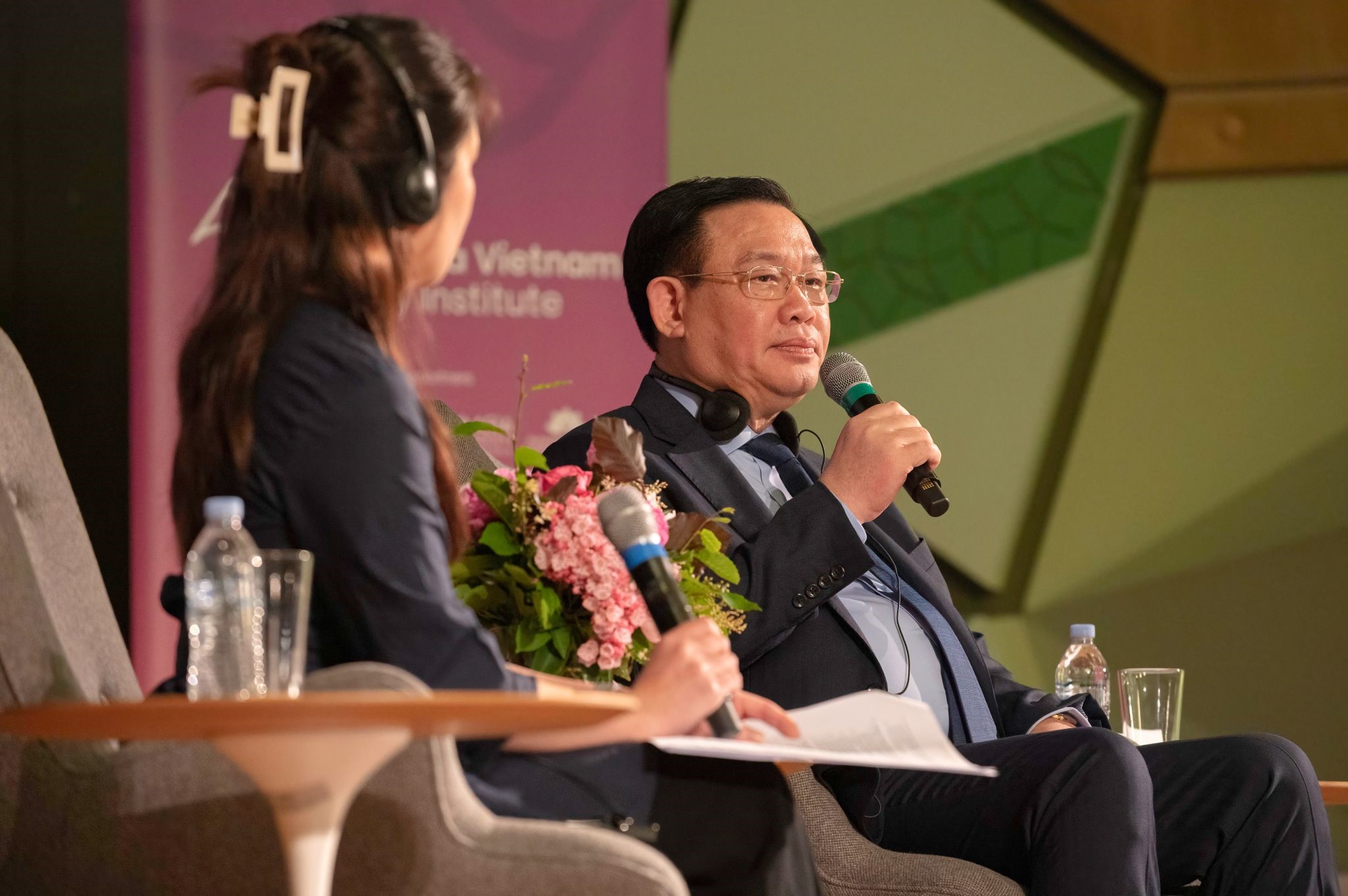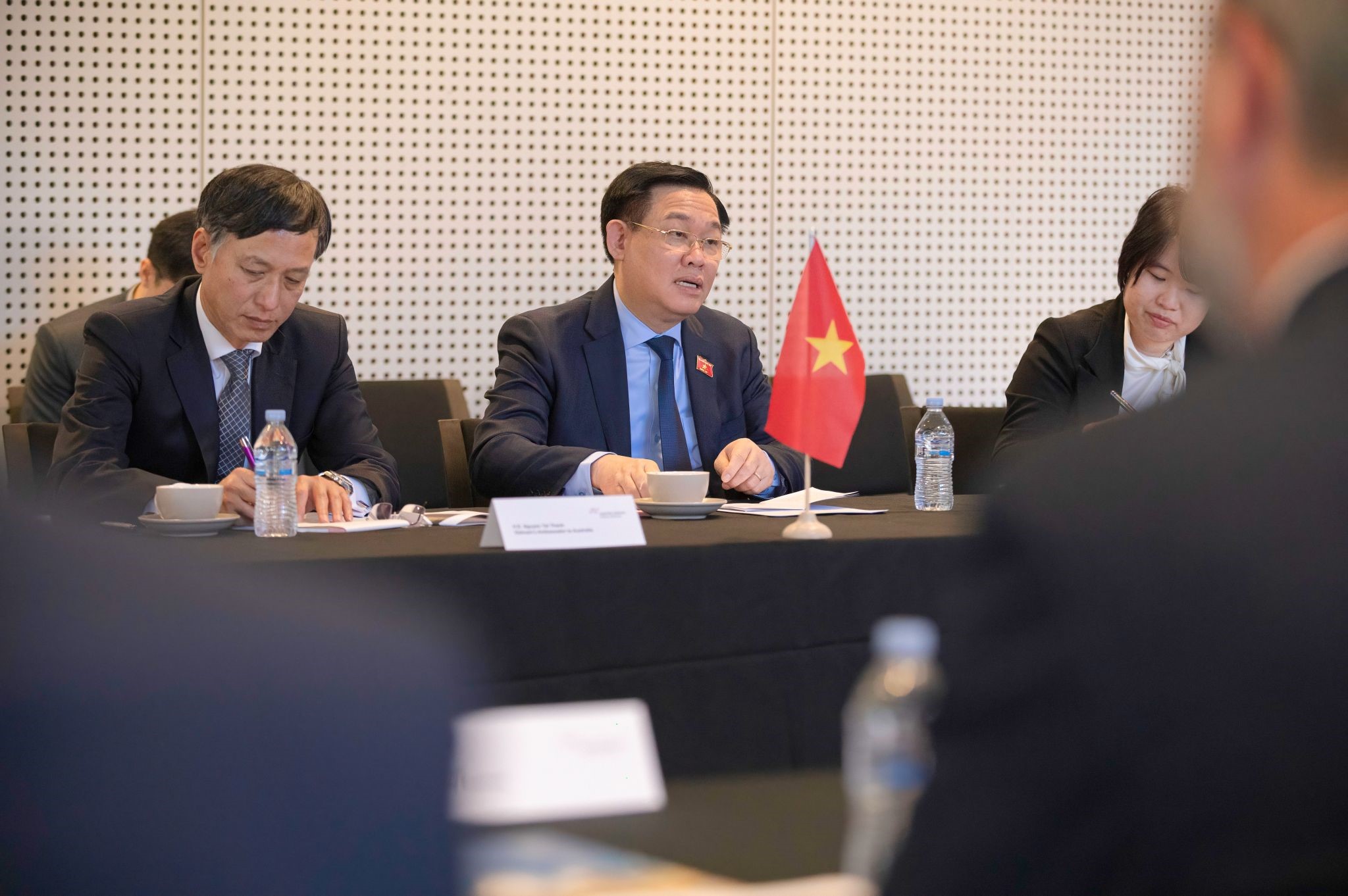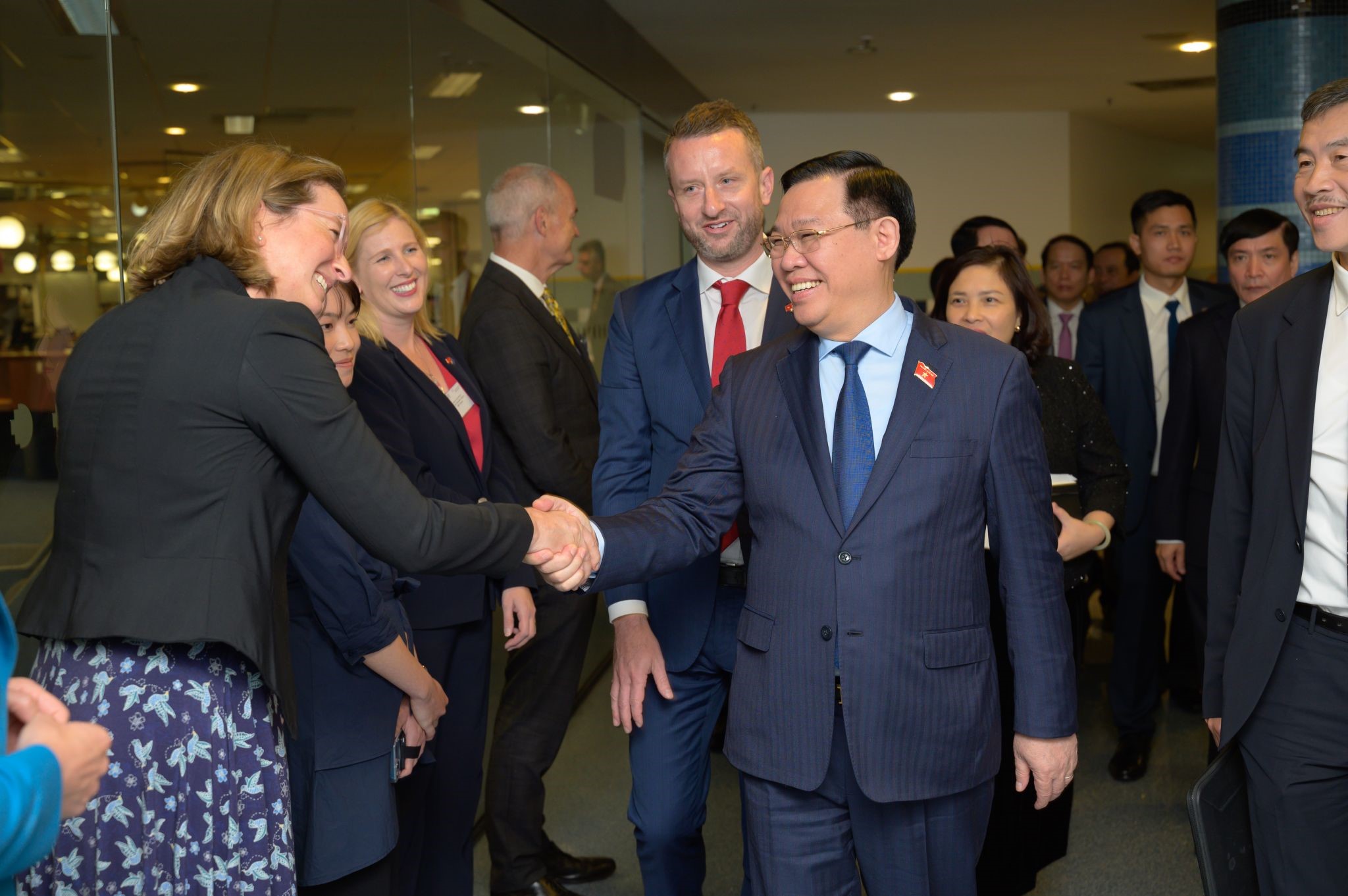Remarks by National Assembly Chairman Vuong Dinh Hue at Australia
“ENHANCING VIET NAM – AUSTRALIA STRATEGIC PARTNERSHIP FOR PEACE, STABILITY, COOPERATION AND DEVELOPMENT
President Hue delivered a policy speech, sharing his thoughts on Vietnam’s foreign policy with reference to the Indo-Pacific and the Australia - Vietnam relationship both now and in the future.
Professor Alec Cameron, President and Vice-Chancellor of RMIT University,
Distinguished guests,
Today, I am delighted to visit and address the Australia - Vietnam Policy Institute (AVPI), the first agency in charge of conducting policy research and providing recommendations specifically on the Vietnam - Australia ties.
The establishment and operation of the Institute thus far reflect Australia’s increasing attention to Vietnam, at a time when our two countries are entering a new phase of more robust and substantive development in terms of bilateral relations - President Hue said
The AVPI has convened many diverse discussions on policy issues, and connectivity among businesses and localities from both sides.
I do hope that the Institute will soon become a leading research center on Vietnam in the region, and serve as an incubator for ideas on the means to further strengthen the Vietnam - Australia ties in the next 50 years.
In my remark, I would like to share with you my thoughts on three items:
First, the situation in the region and the world.
Second, Vietnam’s foreign policy, particularly pertaining to the Indo-Pacific.
And third, the Australia - Vietnam ties at present, and future prospects.
1. The world is entering the third decade in the 21st century, with a myriad of unpredictable shifts. For the first time, humanity suffered from an unprecedented pandemic, with its consequences far surpassing any expectation. Since the Cold War, never before has the international political, economic and security landscape been faced with such a multitude of challenges.
The persisting and complicated impact of the pandemic, coupled with geopolitical tensions and conflicts, competition among major powers, turbulences in the food, energy, financial and monetary markets, and the disruptions to supply chains have wiped out several accomplishments in poverty eradication and development for many decades. They have also brought about tremendous and multidimensional hurdles, both in the short and long term, in many countries around the world.
Globalization is facing countless obstacles, while countries are under pressure of having to choose side amid geopolitical competition in the region and the world. There are also intensifying contradictions between cooperation and competition, independence and interdependence, and development and outdatedness.
In addition, non-traditional security challenges, particularly the adverse impacts of climate change, are directly affecting the people, security, and development of all countries.
However, the broader picture of the world is not entirely doom and gloom. We can remain optimistic and hopeful in the future. The world is gradually overcoming COVID-19. The pandemic, rather than tearing us down, has helped us become stronger, and more united.
Click HERE to read the President's full speech.




